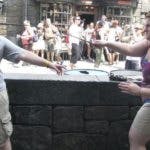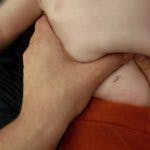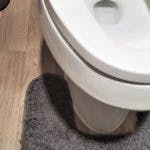Hirschprung's Disease (HD) occurs when part of a child's digestive tract does not have healthy nerves attached to help it work. The child undergoes surgery to remove the non-working part of the colon, has a colostomy bag to assist with poop management while the bowel heals, and then undergoes surgery again to remove the colostomy bag and allow the child's bowels to manage the poop.
Pelvic floor physical therapy can help these children at any age, though ideally the child would be seen as soon as the surgeon approves the start of therapy. Pelvic floor therapists will assess the pelvic floor functioning (how well does the child have control over their ability to hold pee and poop in, push poop out, and relax to let pee out). Children with a history of HD often undergo surgery soon after birth, and because of this, often go a year or more without having to perform the mechanics of pushing poop out. When this delay occurs and the child does not have to use the mechanic to push poop out, they often need help learning this process, because they've missed the window to learn it as an infant.
Physical therapy treatment for these children assist them in learning the mechanism needed to push poop out, and to appropriately use their pelvic floor. Physical therapy will also identify any other challenges that need to be addressed such as abdominal stiffness due to the colostomy bag, changes in gross motor development and meeting developmental milestones that may have been delayed due to surgeries or the colostomy bag, while balancing therapy with medical management and communicating with the gastroenterology provider.
Blog Articles



